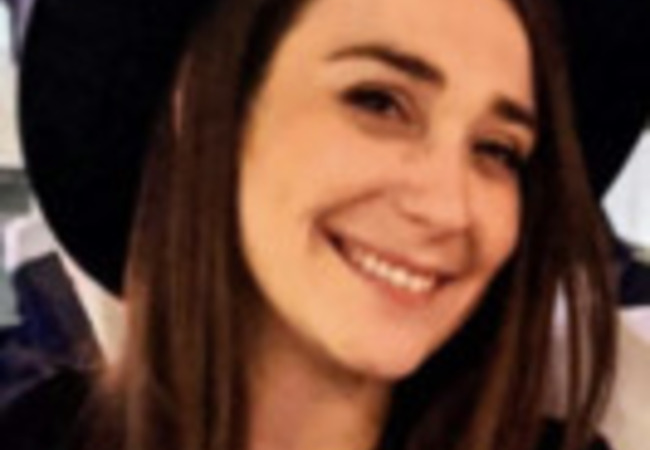September 8, 2025
Meet Annie Boyle, LPC
Anne Boyle has been with Hopewell since 2022. She holds a Master’s Degree in Clinical Mental Health Counseling from Kent State University. At an organization with several Anns and Annes, she is known as Annie B.
Prior to Hopewell, Annie B. worked for a community based mental health organization providing in-home therapy and case management for adults in Cleveland. She was intrigued when a position opened at Hopewell. “I wanted to work where a higher level of care was needed for severe and chronic mental health issues and I fell in love with Hopewell’s approach to residential treatment,” she said.
”Hopewell is so different from what I learned about residential care in graduate school. We see a resident as a whole person, not a problem to solve in a few days or weeks before discharge. A minimum 4-6 months stay at Hopewell allows for a timeline to address issues that affect a resident’s health and wellbeing. We help them identify what they find meaningful, discover multiple facets for managing their illness, and build a wellness kit with skills that allow them to manage life’s stressors and maintain overall wellbeing and health,” she stated.
Different Approaches to Treatment
“Primarily I use three approaches with residents. Exposure and Response Prevention (ERP) is primarily for Obsessive-Compulsive Disorder (OCD) and most forms of avoidance. Cognitive Behavior Therapy (CBT) is for cognitive restructuring and reframing maladaptive thinking patterns, specifically for someone whose baseline anxiety is high. Acceptance and Commitment Therapy (ACT) is for someone who struggles with accepting the discomfort of life. We also do a lot of work exploring values,” Annie explained.
“What we understand to be profound and meaningful change is not the social standard. Little steps mean a lot. Perhaps it is a resident moving to a slightly less supportive living environment. Someone who moves from Hopewell to the Cleveland Transition Program, where I spend a great deal of time, receives Hopewell support while living more independently. Maybe this person takes everything they have learned and apply it in a lower level of care. Maybe they will get a part-time job. Maybe they will go home and manage their ups and downs. I am deeply moved when I see them advocate for themselves.”
Working With Families
Another part of Annie’s job is working with families to the extent that the resident allows. “I advocate for the resident as I help a family understand what they feel is going on, especially when they struggle to communicate. Even if the residents do not want us to share personal health information (which is their right), I can connect families to resources to deepen their comprehension of the situation and provide support. My approach is more psychoeducation as opposed to family therapy.”
As part of their treatment, staff look at a resident’s support system to determine what they need when they leave Hopewell. For some, wellbeing will include living independently and working, while others will be discharged to a group home or a family environment. Annie stated, “When working with a family, I explain the anticipated prognosis and create a plan for warning signs of decompensation instead of waiting for a crisis.”
What motivates you to work with people with mental illness?
“Having been in my career for four years, what drives me is knowing that I can play a role in someone feeling safe and finding motivation to move forward despite real challenges. I am also very interested in human psychology. There can be hard days and weeks when you work with this population. I learned in graduate school that with traditional therapy, you should see progress at X number of weeks, a model that does not look the same in a residential setting. Instead, you want your client to get to the place that they want to be.”
Life at Home and Future Plans
Annie has two dogs, ages 4 and 8. She said, “If I have a difficult day at work, we emotionally regulate together. I do a lot of home improvement projects on an Amish home with 3 acres that I bought with no electricity, heating, or cooling. I value having a support system so a house with a huge kitchen and deck allows us to hang out together. I enjoy using my hands and I do a lot of yard work. Breaking down a wall or making an art piece are great stress relievers.”
Annie’s longer-term plans include gaining her independent social work licensure. She is also pursuing continuing education about OCD, which she is very passionate about. This summer, she plans to go to Gatlinburg with her friends and family – a welcome period of rest and relaxation.
Thank you, Annie B., for everything you do for Hopewell!
Back to Blog
